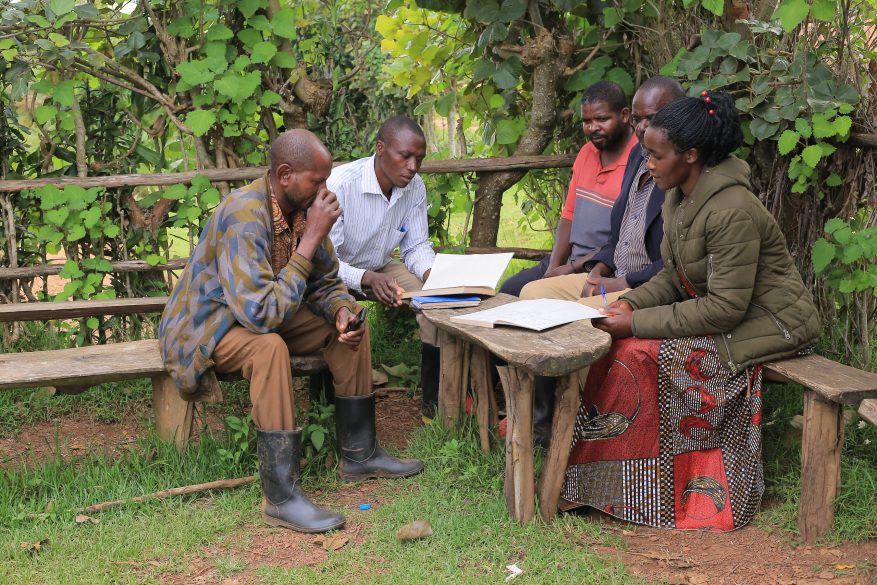A village natural resources management meeting in session
Our access to land, water, soil, clean energy and much more is finite. Around the world, these resources are under threat like never before. Pressures from factors such as human development and climate change means it is increasingly important that we develop effective ways to manage these precious natural resources.
In Kigezi sub-region, Uganda, economic growth is increasingly tied to sustainable natural resource management. Self Help Africa, through the ‘’Building Landscape for Resilient Livelihoods” project funded by Irish Aid, and the Growing Resilience and Eco- Enterprises (GREEN) project supported by the Community Foundation Ireland, is working to transform sustainable natural resource management – and tackle complex environmental and socio-economic challenges too.
The Multistakeholder Platform (MSP) brings together the public, private, and civil society sectors, creating a dynamic forum for inclusive dialogue and decision-making. Through this collaboration, including expertise in agriculture, water, sanitation, hygiene (WASH), nutrition, and policy, the platform develops comprehensive solutions to the region’s interconnected challenges.
Through the MSP, eco-tourism and other environmentally conscious business models are gaining momentum. This is helping the local economy grow, while also preserving the region’s rich biodiversity. This balanced approach is essential to building a resilient and sustainable future for the Kigezi sub-region.
The MSP also spearheads innovation in water management, sanitation, and food security. Empowering local communities is central to this approach. Through training and capacity-building, the MSP equips communities with the skills and tools to manage natural resources sustainably and adapt to climate change. The result? Significant improvement in the health and wellbeing of community members.
Influencing Policy and Promoting Knowledge Exchange
Tania Haidara, Self Help Africa Uganda Country Director, explained of the MSP: “The platform is also playing a critical role in influencing policy by advocating for sustainable practices that align with community needs. The MSP ensures that policy decisions are informed by all stakeholders, including local authorities, civil society, and private sector players, enhancing the protection of natural ecosystems.”
Knowledge exchange is promoted too, through connecting academia, research institutions, and grassroots stakeholders. This supports the flow of innovative, evidence-based solutions for resource management and sustainable development, incorporating both scientific insights and on-the-ground realities. This exchange drives continuous learning and improvement in approaches to managing Kigezi’s natural resources and addressing climate challenges.
Building Resilient Livelihoods
The Multistakeholder Platform (MSP) also promotes climate-smart agricultural practices. These practices are essential for strengthening food security and ensuring long-term economic sustainability. Through these methods, smallholder farmers can increase productivity, improve crop yields, and better withstand the impacts of climate change – and all while preserving their local environment for future generations.
Grassroots Advocacy for Long-Term Impact
The MSP’s grassroots advocacy committees amplify community voices, ensuring that local concerns shape policies and decisions. These committees play a vital role in fostering local ownership and bottom-up approaches, driving long-term sustainability and promoting community-led advocacy efforts.
The Multistakeholder Platform in Kigezi offers a powerful model for collaborative natural resource management. By bringing together diverse stakeholders and empowering local communities, the MSP is paving the way for a sustainable and resilient future. Its success serves as an important lesson for other regions facing similar environmental and socio-economic challenges.

